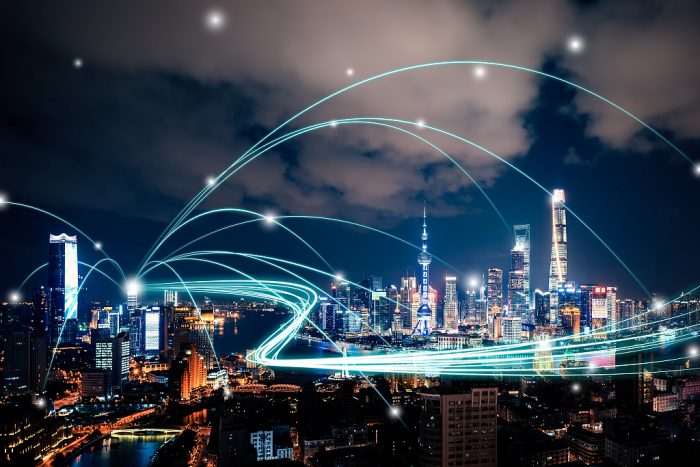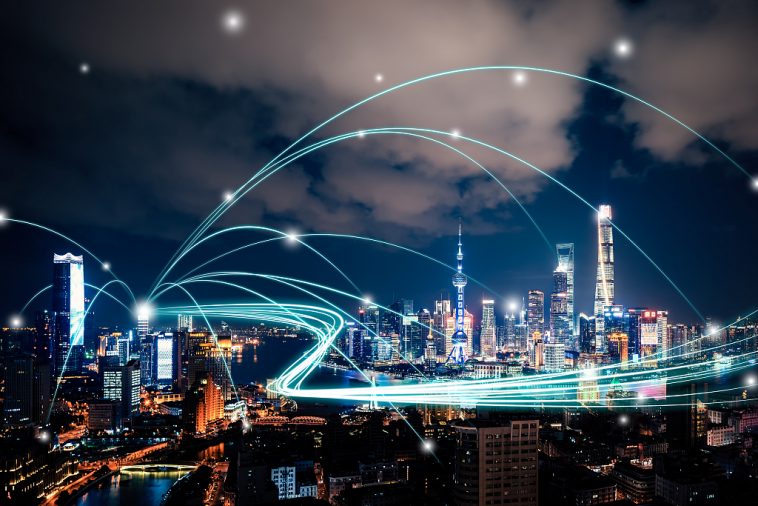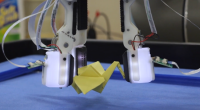Every day, we read about the investment of a certain brand or technology in the metaworld. Virtual worlds like Decentraland—a decentralized 3D digital society—will revolutionize the way we socialize, shop, entertain, and more, and promise to be a major driver of the global economy.

Less talked about is the digital sustainability of the metaverse. Web 2.0 taught us that when building platforms, emphasizing growth over security can have devastating effects on people’s lives. Fortunately, more and more smart brands and platforms are realizing that trust is a driver of strategic growth and a brand differentiator. In other words, security, privacy and inclusion, the three pillars of digital trust, are not only good, but conducive to growth.
A $30 Trillion Opportunity
To be sure, the metaworld will be the main driver of the global economy. Early predictions suggest the metaverse will grow into a $10 trillion to $30 trillion industry over the next decade.
If there’s one thing we’ve learned from Web 1.0 and Web 2.0, it’s that early predictions were vastly underestimated. Once human creativity and innovation is unleashed, it is impossible to see where it will take us. That’s why we can’t waste this opportunity to repeat the mistakes of Web 1.0 and Web 2.0.
Sadly, we’ve seen similar issues arise, including racist NFTs and misuse in the metaworld. Within a week of Facebook’s parent company Meta allowing beta users to test out its virtual reality platform, a woman reported being sexually harassed.
We’ve seen how abuse on social media can change victims’ lives. In the metaverse, things are even worse. The New York Times warned late last year: “[Virtual] reality brings people into an omnipresent digital environment where unwanted touches in the digital world can feel real and sensory experiences Get uplifted.” Here’s the caveat we must heed: The more our identities and interactions take place in this immersive experience, the worse the effects of toxicity on our health.
Needed: A United Nations for the Metaworld
World War II taught us how terrible it is to let social ills go unchecked, including hate speech. We vowed never to do this again and established the United Nations. The United Nations, in turn, has developed protocols that promote social and economic benefits and equality. These important protocols include the Universal Declaration of Human Rights, the International Covenant on Civil and Political Rights (1966), the International Convention on the Elimination of All Forms of Racial Discrimination, and the United Nations Strategy and Plan of Action on Hate Speech.
While adoption is voluntary, these protocols, co-authored by experts and sharing best practices, provide assurances for each country to adapt to its own society.
We need a UN-like body to develop protocols that enhance the trust and security policies of every platform in the metaverse.
Assets that benefit us
We can create a metaworld built on trust, privacy, and equality because there are many advantages, chief among them hindsight. Web 2.0 shows us exactly where the dangers lie, which gives us the opportunity to address them in a comprehensive manner.
And, we also have a relatively small but knowledgeable cadre of professionals with deep expertise in trust and security, privacy and ethical technologies.
As I told TIME, the Jan. 6 uprising was the result of not having a guardrail 15 years ago. But now, the importance of guardrails is known. But in the early days of Web 2.0, we didn’t know this, and it’s clear now.
More importantly, we promise to do better. In 2021, I co-founded the OASIS Consortium, a think tank of trust and safety experts from community platforms, industry organizations, academia and nonprofits, government agencies, and advertisers. (Recently, the OASIS Alliance developed the first user security standards. More than a dozen companies, including Agora, Dentsu, and Grindr, have pledged to adhere to these standards.)
Entrepreneurs who will drive the metaworld realize that they don’t necessarily have the expertise to build secure by design, fair by design, and privacy by design on their platforms. And we will provide them with that expertise.
Guardrail for WEB3
A user safety framework built around the 5Ps: Priorities, People, Partnerships, Products and Processes. All of this will play a vital role in protecting those entering the metaworld of hope and trust, and the trillions of dollars that will be invested in it.
priorities. This recognizes that trust and security are critical to an organization’s mission and establishes it as a central tenet of the platform. This requires management level trust and the permissions and resources required by the security officer to ensure that all users are safe and welcome.
people. This refers to teams that develop and maintain clear community guidelines and moderate user behavior. It is important that those who develop all policies represent all users, no matter who they are or where they are located.
Partnerships. As mentioned above, a growing number of trust and security experts and professional organizations such as OASIS are willing to share their insights and set security standards for the industry. The partnership also includes technology providers that enhance human conditioning efforts.
product. Design safety, design fairness, and design privacy are critical to digital sustainability. Platforms need to deploy the latest technologies and proactively implement safe and welcome behaviors outlined in the Platform Community Guidelines.
process. Platforms need to define comprehensive processes for effective trust and security operations. The trust and safety community has generously shared a wealth of insights that platform providers can leverage to ensure their digital sustainability.
Our vision is to create an ethical Internet with safety, privacy and inclusion at its core, one that future generations can trust to interact, co-create and exist, free from online hate and poison. I believe we can make this a reality.




GIPHY App Key not set. Please check settings